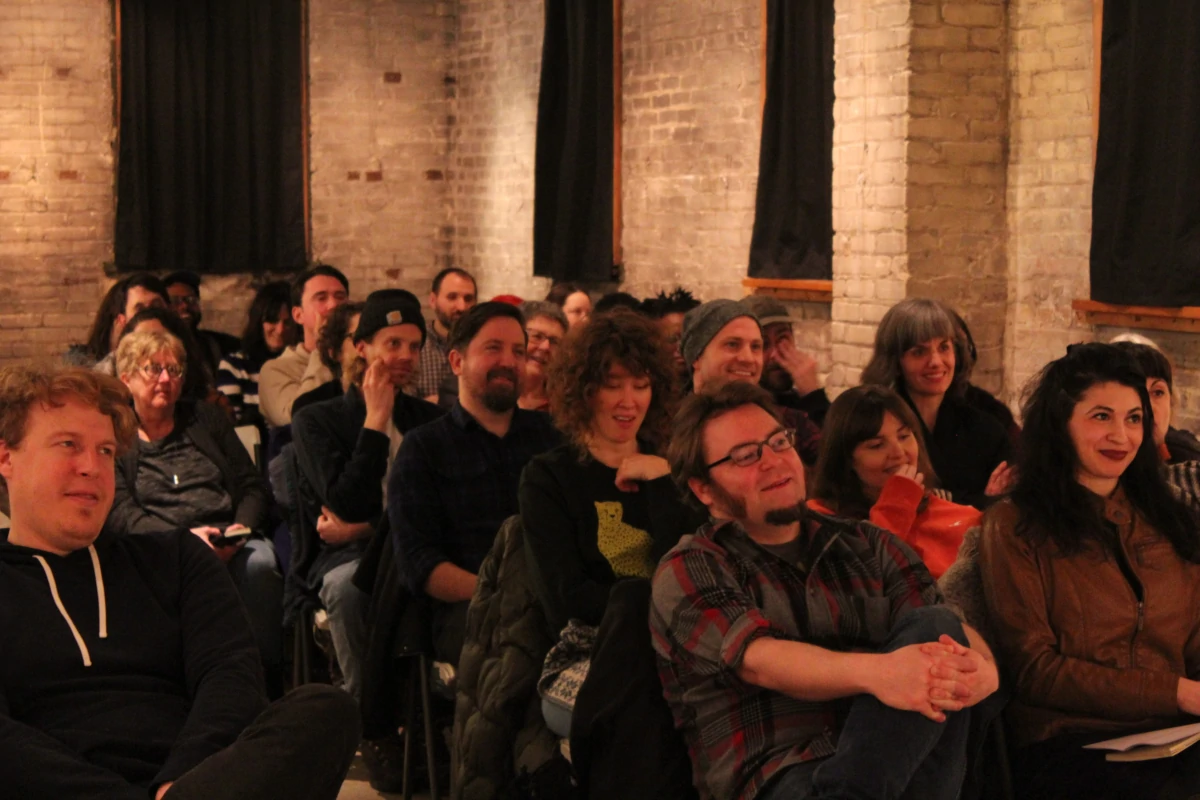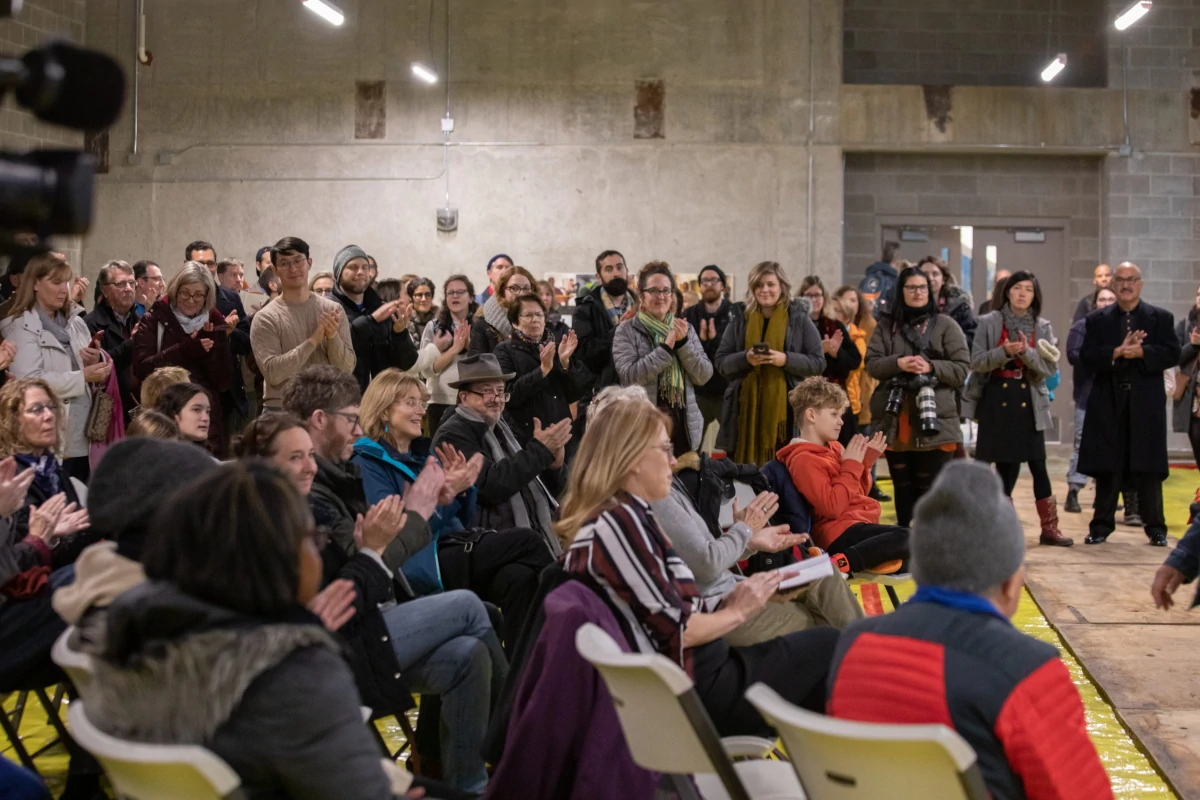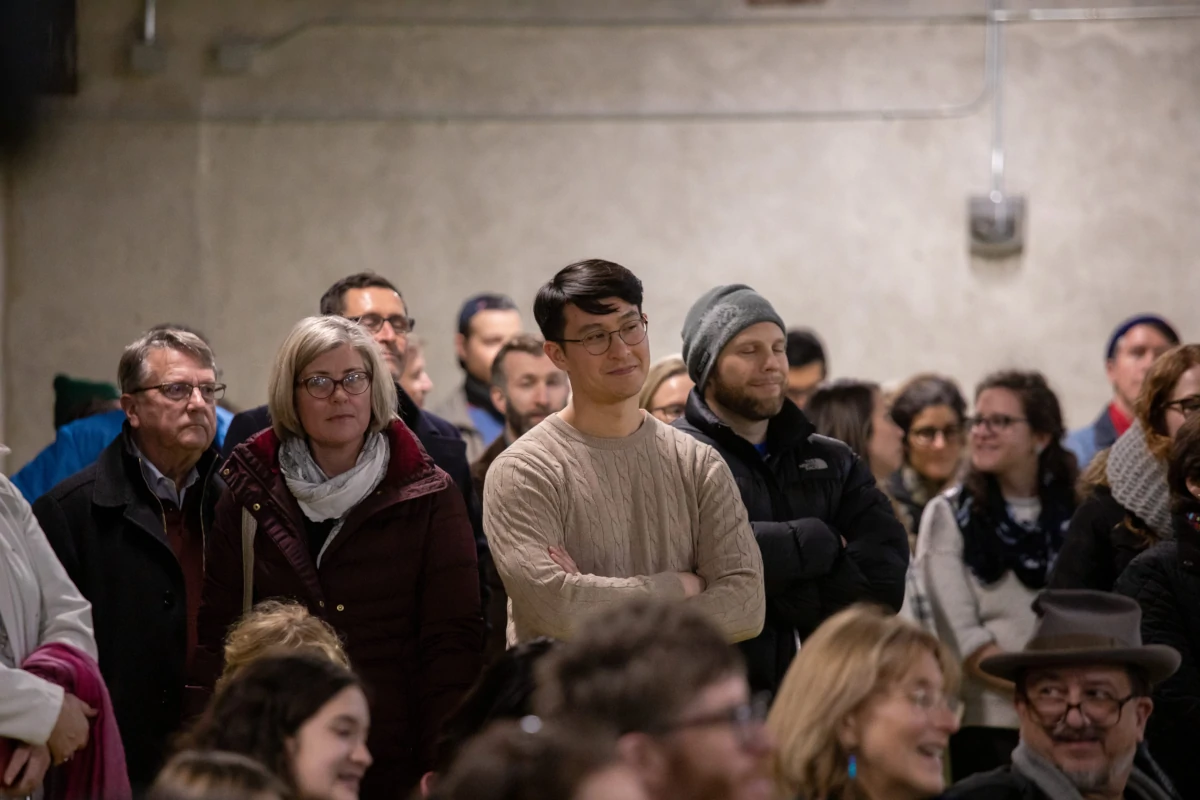Kitchen Table MFA: An Interview With ALL
Words By Rita Mae Reese; interviewed by Nancy Reddy
This interview is part of the Kitchen Table MFA, a series that showcases writing communities through interviews and creative writing.
After the interview, be sure to check out the work of ALL members Steve Tomasko, Marilyn Annucci, John McCracken and Jesse Lee Kercheval. Also, read Nancy’s essay on the Kitchen Table MFA series here.
The Arts + Literature Laboratory in Madison, WI is a community writing and arts space that hosts an amazing array of activities including exhibits, screenings, and workshops, as well as education through writing workshops, arts classes, a queer youth book club, and a teen leadership program. ALL hosts the monthly Watershed Reading Series, which has recently featured Natalie Eilbert, Barrett Swanson, and Chekwube Danladi. It also runs a Craft Talk Series which aims to gather writers at all stages of their writing careers to share information about craft and publishing topics; recent craft talks have included Catherine Stephenson and Rita Mae Reese’s discussion of tools for writing like Scrivener and online writing communities and Michelle Wildgen’s talk on moving past rejection. ALL is also home to the smALL Press Library, which includes books by Sarabande Books, Persea Press, Graywolf, Milkweed, Coffee House Press, Copper Canyon Books, as well as literary magazines.
Nancy Reddy (NR)
ALL has so many different kinds of activities, and I really love that the space is home to both educational programming (workshops, classes, mentoring, discussion groups), as well as readings and exhibits by emerging and established artists and writers. So many groups and spaces do one thing or the other – classes/workshops or readings/exhibits, which can create this sense that either you’re a student taking classes, or you’re a “real” artist sharing your work. I love that both things happen in the same space at ALL. How did you all land on that combination of activities? How did ALL become a space for education and performance?
Rita Mae Reese (RMR)
ALL started in New Haven, Connecticut in 2003 as a nonprofit for artists and writers. When founder Jolynne Roorda moved to Madison, she knew she wanted to re-open the organization and make it responsive to the needs of Madison. She teamed up with a group of writers, including Rita Mae Reese who now serves as the Literary Arts Director. Rita Mae has a background in continuing studies and is passionate about connecting experienced writers with newer writers. Madison has a wealth of both experienced writers and people eager to learn more about writing. ALL provides the perfect space for forming those kinds of relationships. Even better, there is exponential creativity and learning from the presence of visual arts, performance and music. There has traditionally been a pretty strong town/gown divide in Madison, and that is another division that we work constantly to overcome. We are committed to the democratization of access to the arts because we know that when people come together, we all have a much better chance at leading our best lives.
So the “Arts” and the “Literature” part of our name is important but so are the “+” and the “Laboratory.” We strongly encourage that idea of a laboratory–a place to labor and experiment, not just show off what you do well. And the +, which speaks to making those connections between people but also thinking about how adding arts and/or literature changes our personal equations. We want everyone to bring their own answers to what “Art + you =” or what “Literature + you =.”

NR
There’s so much literary activity in Madison – the MFA program at the University of Wisconsin-Madison, the Wisconsin Book Festival, the Madison Writer’s Studio, Monsters of Poetry, the Cabin Fever writing workshops through The Bubbler at the public library . . . and probably lots more I’m forgetting. What was your aim in creating the Arts and Literature Laboratory? How do you see ALL engaging the literary community that already exists in Madison – or perhaps reaching new writers and artists, or filling a niche those other groups don’t?
RMR
A professor at UW-Madison recently pointed out that 30 years ago, there seemed to be a pretty sparse literary scene in Madison. There was a poetry group, that seemed opposed to the university writers. But now I think there’s much, much more cooperation across the board now. We believe that a strong arts ecology is good for everyone, so we provide a performance venue for other organizations, including at times Monsters of Poetry. We’re co-sponsoring a reading in October, held at Room of One’s Own, with the Wisconsin Book Festival. We don’t see other organizations as competition at all–we put on over 200 events a year, so we’re happy that there other options out there, and promote those options when we can.
We have a literary arts curatorial team that represents many different perspectives in Madison–poetry, spoken word, fiction, storytelling, creative non-fiction, university, non-MFAs, published, never published—and I think that keeps our programming dynamic and bringing together people who probably also participate in many or all of the areas you mentioned into one space.
NR
ALL has been located in a gallery space on Madison’s East Side, and I saw that you all may be moving to an even bigger space. I’m always interested in how physical space and geographic location shape the work that community organizations can do. How did being on the East Side (rather than, say, closer to the university or on the West Side) influence the work ALL was able to do, and the community it served? What new possibilities might the new space create for you?
RMR
When we started, we had about 1000 square feet, and even that felt like a real leap of faith. Could we pay rent and utilities for a space and still have most of our events be free or donation-based? It did, of course, and we grew so quickly that when the second side of our building became available, we rented it with fingers crossed it would work out. We added youth education programming and quickly felt very squeezed with 2000 square feet. Now, we’ve been approved by the City, thanks to the hard work of our alder Marsha Rummel among others, for a new commercial space that is over 4 times that. The building is located one mile from the current space. It’s technically out of our current neighborhood but we’re expecting to stay connected to our wonderful neighbors in our current neighborhood, and serve a lot more people with our increased visibility (we literally never had a sign on the old building) and accessibility.
We’re really excited that we’ll have designated spaces for education, performances, the smALL Press Library, and the gallery. We’ll also be able to add four to five artist studios, which are in short supply in Madison. Our hope is to build out a mezzanine that is entirely dedicated to the literary arts. We also expect more organizations will be able to use our space.

NR
A practical question: ALL is a 501(c)(3) and has been able to secure funding from the Madison Arts Commission, the Madison Community Foundation, the Wisconsin Arts Board, and tons of local businesses. What practical advice do you have for other artists or writers looking to create a space like ALL’s? How important has the 501(c)(3) status been, and what have you all been able to do to secure funding to make ALL’s programming sustainable and affordable for community members?
RMR
Being a 501(c)(3) is very important. You can arrange a fiscal sponsorship, but that relationship typically comes with a percentage cost and if you’re operating on a thin margin already (which you almost certainly would be), then that could make the difference between viability and closing your doors.
Our initial meeting to create a literary arts center in Madison attracted 24 people. There was great initial enthusiasm. Some of the people at the meeting are still very actively, even daily, involved with ALL. But most aren’t. You have to expect that even the people who seem most committed might not stick around. So you are always changing, always welcoming new people and allowing the organization and programming to reflect those new perspectives without compromising the mission of the organization.
We are also a membership-based organization. Grants will likely never cover very much–in fact, I think they account for something like 20% of most non-profit’s budgets. Individuals keep non-profits afloat. You’ll need those individual gifts for matching funds in your grants, and also just to know that you are really serving the needs of the community. They’ll definitely let you know by the gifts you are receiving. And you’ll want someone who can maintain good relationships with those supporters.
We have a grant from the City of Madison to help with the costs of build out for our new location, but we’ll still need to raise a significant amount to complete the build out and to support staffing for the first few years while we build the programs. So far, we have relied mostly on volunteers, but we value the time of artists and writers and believe they should be paid for their labor. (In fact, over half of our budget each year goes to paying artists, including writers and musicians.) So we’ve made the decision to enter a long-term lease so that we can invest in people–paying people to do the necessary work of managing so many events, connections, and opportunities. We know we can’t do it alone, but we know we absolutely can do it.
